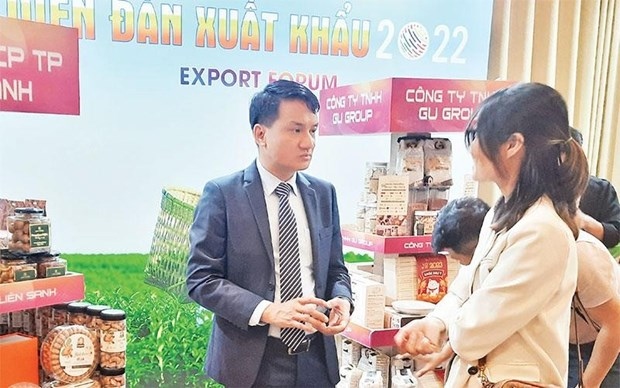Enterprises overcome challenges to gain impressive results: Experts
Despite many difficulties, import and export activities continued to be a bright spot in economic recovery of Ho Chi Minh City in particular and Vietnam in general, according to experts.

This year, HCM City’s economy coped with the impact of the COVID-19 pandemic, the Russia-Ukraine conflict, rising interest rates, falling demand for goods, high raw material prices and input costs and a disruption in the supply chain. However, the city has gained impressive results thanks to flexible policies of the State and efforts of enterprises in expanding export markets.
HCM City’s export turnover reached US$49.5 billion in 2022, up 10.3% year-on-year, and its imports hit US$66.2 billion, up 10% against last year.
Main export markets are the United States, China, the European Union (EU), Japan, the Republic of Korea (RoK) and the Association of Southeast Asian Nations (ASEAN).
Mizushima Kozo, Chairman of the Japan Business Association in HCM City, said that compared with Southeast Asian countries, Vietnam's economic recovery speed is extremely impressive.
A survey conducted by the association showed that by September 2022, about 60% of Japanese enterprises had resumed their operations and 63% of surveyed businesses planned to expand investment in the next two years, he said. This reflects that investors have great expectations for Vietnam's economic growth.
Tran Phu Lu, deputy director of the HCM City Investment and Trade Promotion Centre, said that the difficulties of the world economy and global trade are forecast to last until early next year and Vietnam's exports will depend on developments in the Russia-Ukraine conflict as well as inflation control in large export markets. However, he said, it also provides an opportunity for enterprises to overcome challenges and maintain the growth of commodity exports.
Export enterprises can take advantage of tariff reduction of free trade agreements (FTAs) that Vietnam has signed, especially new-generation FTAs such as the Comprehensive and Progressive Agreement for Trans-Pacific Partnership (CPTPP), European Union-Vietnam Free Trade Agreement (EVFTA) and Regional Comprehensive Economic Partnership Agreement (RCEP), he said, adding that the country has signed more than 90 bilateral trade agreements, 12 multilateral trade agreements, nearly 60 investment promotion and protection agreements and 54 agreements on double taxation avoidance.
Lu said it is necessary for enterprises to focus on investing in technological innovation to continue enhancing their competitiveness, improving product quality, and building Vietnamese products with prestigious brands.
Businesses are recommended to proactively update information about the world and import markets, he said. Since then, they have changed management policies, production and business plans.
Tu Minh Thien, an economist, concurred with the need to restructure of enterprises to adapt to the new situation, noting that they should make plans to meet the demand of export markets.
